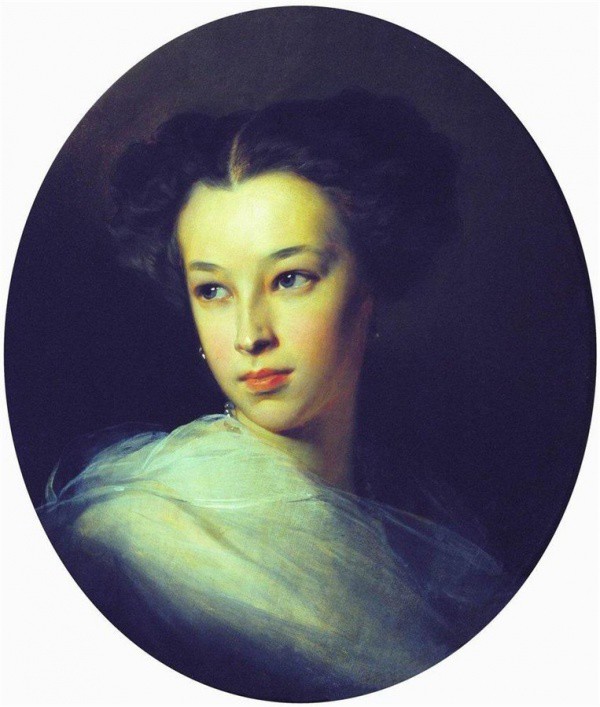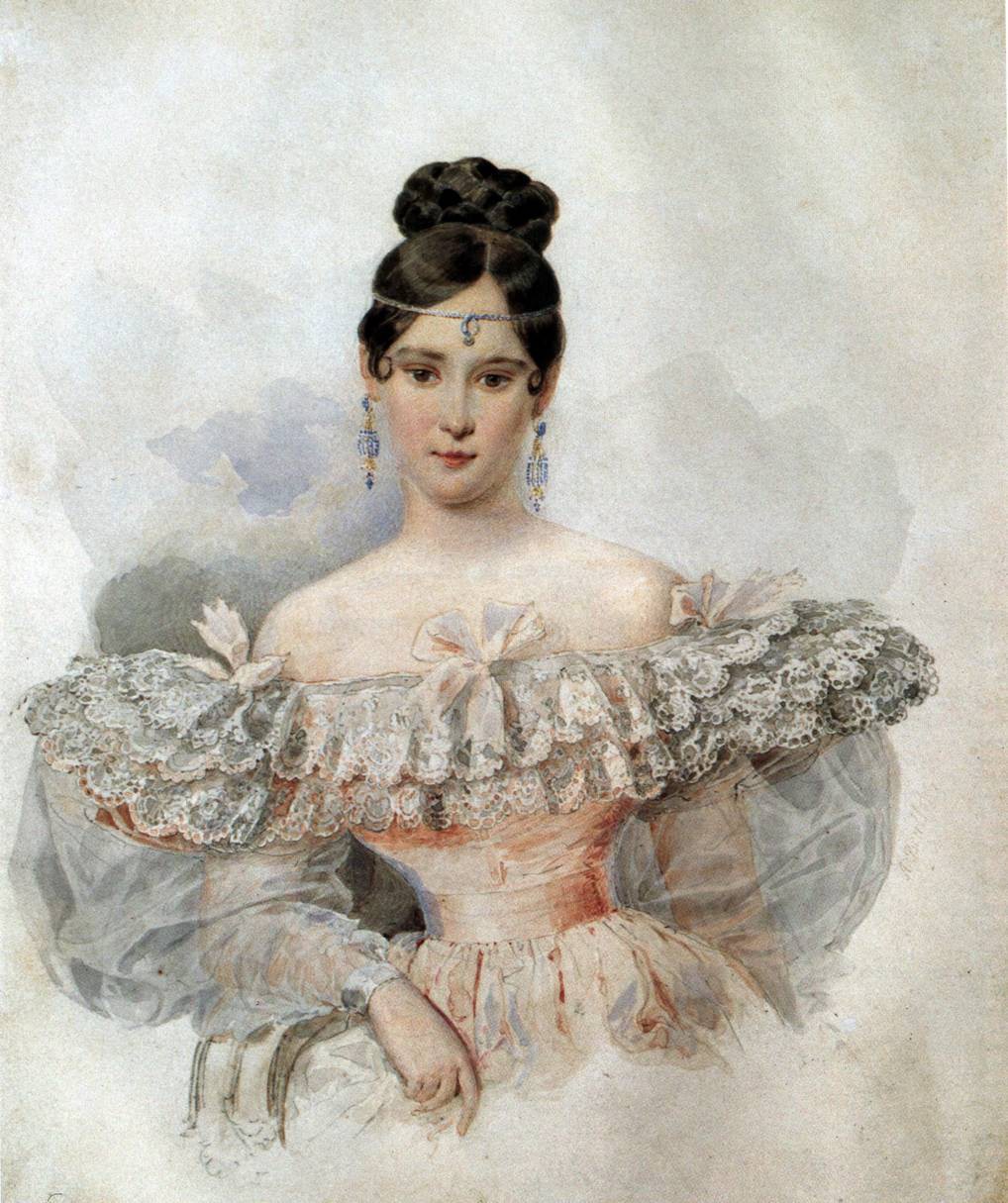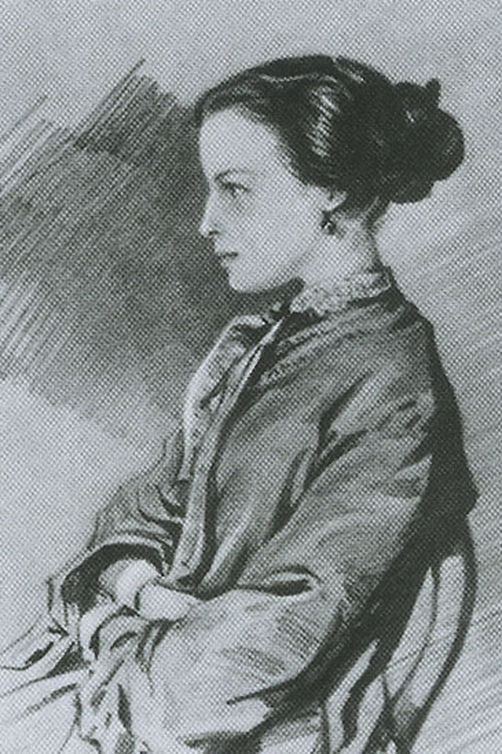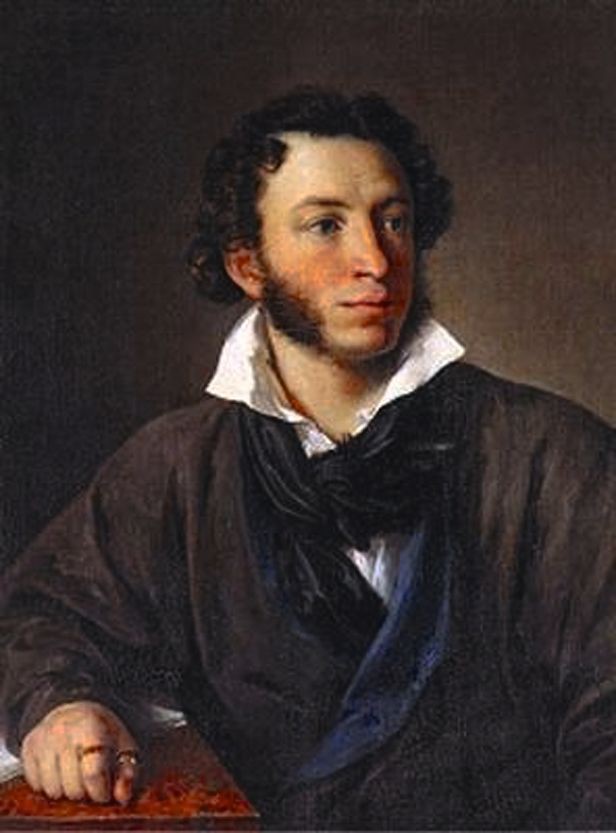The most interesting historical facts. A fascinating story of New Year's toys. Crime and Punishment
The daughter of the great Russian poet did not become a princess, but she lived a life that would be enough for the plot of more than one novel. After her death, no cross or slab remained. As if there were no tears, no life, no love ...
Imp Tasha
This was the name of the youngest daughter of Pushkin in the family, Natalia Alexandrovna. When the tragedy happened on the Black River, Natasha was only 8 months old. After the misfortune, Natalya Goncharova immediately took the children from St. Petersburg to her family estate in the Kaluga province. Natasha grew up there, surrounded by the love and care of her relatives. Of the four children, she was the most restless and mischievous. However, the girl was distinguished by good manners, excellent knowledge of Russian and French, and already at the age of 13 amazed those around her with her beauty, which was captured by the famous Russian artist I. Makarov.
Through laboratory testing, materials found in raincoats can also determine what they have used and what the population is suffering from. Cows are one of the most interdisciplinary research objects. Unsurprisingly, the discovery of Latin has attracted many researchers. It should be borne in mind that during the decay processes taking place in pits, gases are formed that can be toxic and even explosive when in contact with fire. The younger you find it, the more dangerous it is because untreated organic matter can be rich in methane and all kinds of bacteria.
When her mother, Natalya Nikolaevna Goncharova, decided to remarry, Tasha was already 8 years old. Goncharova's chosen one was the commander of the Life Guards Cavalry Regiment, Adjutant General Pyotr Petrovich Lanskoy.
On the day of the wedding, a funny thing happened. Young Count Nikolai Orlov, out of a desire to see the wedding celebration of his commander, climbed onto the bell tower of the church in which the wedding was taking place. But, although he made his way there quietly, he found himself very loud: he touched big bell... There was a blow, and Orlov, from fright and confusion, did not know how to stop the ringing. When the matter was explained, he, terribly embarrassed, apologized to the newlyweds.
The proper dress, mask and experience are required to search. Let's now take a closer look at the results of the research conducted in the previous paragraphs. These were the places where you could sit down and remove impurities with water. Such a device was supplied to every house, and the water was drained into a system similar to today's water supply. It may seem that little has changed since then.
Before Eve, passages were also used in China, Babylon, Egypt and Crete. The old toilets were used collectively, there was no separation for women's and men's toilets, and separate toilets were installed in front of them. Their number sometimes reached 50 posts in one room. Unsurprisingly, the toilets also served as meeting places, conversation, negotiation, and gossip.
Time passed, Tasha grew up. Nikolai Orlov spent more and more time with the Lansky family, especially in the summer at his dacha in Strelna. Gradually, friendly feelings were replaced by mutual ardent love. When Tasha turned 16, and Nikolai was 24, the young man who was in love with no memory made an attempt to get married. But Nikolai's father, head of the Third Branch, Count A.F. Orlov (Benckendorff's successor), was categorically against this marriage. "The truth was that the radiant beauty Natalie was for him just" the daughter of some writer killed in a duel, "wrote Alexandra Lanskaya-Arapova, sister of Natalya Alexandrovna. Taking advantage of his position, the noble father, under a specious pretext, sent his son away from Russia.
The development of toilets promised to be promising, but history loves to play tricks. So, with the fall of the Roman Empire, the art of building aqueducts was also forgotten. As a result, in medieval Western Europe, despite the relatively rapid development of civilization, a real "anarchy" arose. There are actually places called outposts, but they served mainly as service premises.

At the time, more often than not, it was resolved where it fell, and public defecation was not perceived as bad behavior. The needs from the outside did not pose a problem, it was enough to stop and take off his pants. Since this situation was rather cumbersome, some cities were officially ordered to pour out pollution only at certain hours.

Out of the frying pan into the fire
Natasha hid her sadness from prying eyes. The poet's youngest daughter was proud and capricious, her character was all her father. Stunningly soon after the trampled heat of her first love, she chose the player and playboy Mikhail Dubelt as her companion. He was the son of the chief of staff of the gendarme corps, General Dubelt, subordinate ... father Nikolai Orlov. The amazing resemblance to the young Pushkin and at the same time the luminous beauty inherited from her mother was noticed in Natasha by many of her contemporaries.
In the castles, special bay windows or toilet towers were built, called Gdanice towers. They were towers built into the castle's defensive system. They were constructed in such a way that impurities fell directly into the surrounding moat. The streets were drowned in mud mixed with human waste and impurities from kitchens and slaughterhouses. Passers-by, so as not to get bogged down in street chests, walked along the boards lying on the ground. These boards were quickly consumed, so every few or several years they were covered with new ones, which caused a rapid rise in street level.
At the same time, Europeans did not help with superstitions about purity. In those days, the word "clean" only referred to clothing, not the body. It was believed that washing was the cause of illness, so the body was washed with only a slightly damp cloth and richly scented.
“Her beauty amazed me. In my life I have never seen a more beautiful woman. Tall, extremely slender, with magnificent shoulders and a wonderful whiteness of the face, she shone with some dazzling brilliance. Despite the slightly regular features of her face, reminiscent of the African type of her father's face, she could be called a perfect beauty, and, if you add intelligence and courtesy to this, you can easily imagine how she was surrounded at balls and how all the dandy youth were crawling after her, and the old men did not take their eyes off her, ”
Obtaining physiological needs was not as shameful as it is today. Contrary to the famous phrase "where even the king is alone", the kings used the toilet in the company of their retinue. Sometimes the king even discussed in the toilet. Some rulers had a throne fitted with a hole in the seat to allow them to defecate by taking petitioners. Walking alone to the toilet could be dangerous, as some of the slain rulers were killed. Among them were also Heinrich Valèse, King of Poland and France.
As you can easily imagine, the accumulation of impurities on the streets should have led to the development of bacteria and viruses and, consequently, to the numerous epidemics that plagued medieval Europe. Fear and panic entered the cities. More and more of the eighteenth and nineteenth centuries, medical publications have dealt with the need to clean up impurities and, above all, to close them and remove them from the area where people live.
- wrote the son of the famous novelist M.N. Zagoskin.
Lieutenant Colonel Dubelt was in this "retinue" and instantly lost his head. Out of despair, in revenge to the Orlovs, without much love - but, by the way, who knows now? - Natasha accepted the offer of the hand and heart of Mikhail Leontyevich Dubelt. According to contemporaries, Dubelt Jr. was famous for his intemperate disposition and addiction to the game of gambling. But neither her mother, nor her stepfather, who loved Tasha, could dissuade her from this union. They delayed consent to marriage for almost a year. With her usual harshness and pressure, Natalie Jr. reproached her mother that she was deliberately opposing her happiness ... and thus broke the resistance of her relatives.
The literature also describes numerous deaths caused by inhalation of contaminated water vapor. In Poland, locals usually camped in the middle of a farm next to dung. It was believed to be the first composting toilets that would allow human excrement to be mixed with animal excrement and used as fertilizer.
The barrel system was just a wooden drum buried in the ground, which collected feces. A rectangular wooden structure with a monumental roof was installed above the trunk. In the middle of the room is a seat with a hole, usually made of wood. It is interesting that already in those days there were child seats for children.
On January 6, 1853, on the eve of the wedding, Natalya Nikolaevna Goncharova doomedly wrote to Count Pyotr Vyazemsky:
“The imp Tasha quickly passed from childhood to adulthood, but there is nothing to do - you cannot bypass fate. For a year now I have been fighting with it, and finally I have submitted to the will of God and the impatience of Dubelt. "
Between the betrothed, misunderstandings arose more than once, ending in quarrels and disagreements. But Dubelt, a man of outstanding intelligence and possessing, moreover, the gift of eloquence, swore to Tasha in mad love. And the maturity of the groom's age (he was 13 years older than the bride) inspired hope that Mikhail would become an experienced mentor for her. Alas, these aspirations did not come true, although outwardly everything turned out brilliantly. The wedding took place in February 1853.
Unfortunately, since the barrels were not sealed, impurities often entered the soil, poisoning the wells. Barrels have another drawback - they may have been destroyed by the formation of gases during the decay process. On some farms, the hole was concreted. When the package was full, the following was done next, or the staff were ordered to clean and remove the contents. They were called "night workers".
However, the appearance of salt factories did not contribute to the improvement of hygienic conditions in the Polish countryside. In order not to pay for the removal of impurities, people often poured it right outside the house or yard. The new toilets were rather reluctant to use. Unfortunately, the impurities removed from the estate continued to flow directly into the rivers. Another problem - floods - during floods, all impurities together with the river poured back onto the ground. Also, during periods of drought, when the water in the rivers descended, impurities came out of it, spreading a terrible smell, and with it various diseases.

Under the cover of a dark veil
Just as when the disgraced poet Pushkin was alive, communication with the chief of the gendarmes corps Leonty Dubelt brought grief and trouble, so his daughter did not manage to build family happiness with his son Dubelt. Mikhail, an inveterate gambler and a freak, quickly lost at cards all his wife's dowry - 28 thousand rubles, with Natalia he was rude, furiously jealous, scandalous and beat her. And more and more often Her Excellency Madame Dubelt left the house in a dark thick veil and a closed dress with long sleeves. Even in the summer. She hid the bruises under the covers. Traces of spurs remained on her body for life. In a drunken, frantic rage, Dubelt then trampled his wife with his feet and shouted: "This is the price of your beauty for me!"
It was originally built in offices or rooms. Under the age of 20, watchmaker Alexander Cummings patented a knee placed under the sinks to prevent the discharge of unpleasant odors. Since then, further improvements have been made in the toilets. rapidly... Today we can hardly imagine a home without a bathroom. However, the feeling that the benefits of sanitation are everywhere is illusory. Houses that are still waiting to be connected to the sewer system are present not only in the countries of the global South, but also in Poland.
Modern toilets come in a variety of shapes and colors. Heated or lit seats are more challenging. Some of them have functions of remembering when you use the toilet most often so as not to heat the seat for free. There is also growing interest in bathrooms with built-in bidets. Portable toilets are already available on the market. Work is also underway on toilets, which immediately collect and analyze a urine sample. Modern composting toilets are popular, albeit with resistance.
Natalia gave birth to three children, kept one of the best houses in the capital and shone at balls and parties. But rumors about the family atrocities of General Dubelt reached the ears of Emperor Alexander II, and on July 16, 1862, Mikhail Leontyevich was suddenly expelled from the regiment, removed from office and sent on indefinite leave.
In the same year, after 9 years of marriage, Natalya Alexandrovna with her two older children came to visit her aunt, her mother's sister. She lived with her husband, Austrian Baron Friesengoff, in the Slovak village of Brodzany. At this time, her mother, Natalya Nikolaevna, also visited the Frizenhofs. Dubelt was not slow to appear there. He announced that he was starting a divorce proceedings. Natalie's current situation was hopeless, the future seemed hopeless.

The ways of love are inscrutable
Leaving the children in the care of her mother and relatives, Natalya Alexandrovna hid from Dubelt, leaving Slovakia. The young woman made a real sensation in any country, wherever she appeared, but her heart was silent. Several years have passed in endless wanderings: Switzerland, Italy, Austria, France. There was no permanent refuge, no home, the position of Natalya Alexandrovna at that time was uncertain and bleak. Finally she settled in Germany.
… When did this happen, and how did they first meet? Ten years ago, Prince Nikolai Wilhelm of Nassau, having arrived in Russia for the coronation of Alexander II as a representative of the Prussian royal court, saw Pushkin's twenty-year-old daughter at a ball. Then they could not take their eyes off each other and danced all night long. And the presence of Dubelt, the legal spouse, did not stop them. Even the scandal that broke out later did not make Natalia regret the dizzying waltz.
And now, years later, they met again. Nikolai Wilhelm asked for the hand of Natalya Alexandrovna. The prince wanted to marry a divorced woman with three children! An ordinary family, a foreigner ... On July 1, 1867, they got married in London. For the sake of his love, the prince renounced his rights to the throne. The husband procured for his wife the title of Countess Merenberg - after the name of the fortress, which is the ancestral possession of the princes of Nassau - and they settled in Wiesbaden.
Natalya Alexandrovna Dubelt received divorce documents only in 1868, being already the morganatic wife of the Prince of Nassau. Natalie's new marriage was long and happy. Prince Nikolai Wilhelm, a good-natured German, adored his wife. She bore him a son and two daughters.
She, of course, did not become a princess - the marriage was unequal and did not give her the right to join the family of the Dukes of Nassau. But her husband's relatives warmly received her (although not immediately), and Natalya Alexandrovna felt easy and comfortable in her new possessions. The palace where she lived with the prince was turned into a museum by her efforts. Natalie was surrounded by an atmosphere of love and reverence.
Speaking about Natalya Alexandrovna, all contemporaries noted that she inherited her father's temper - passionate, irascible and proud. I didn't get into my pocket for a word. And now, even in Wiesbaden, there are legends about her wit. Writers and musicians entered their house, a rich collection of rare paintings was collected in the gallery, garden flowers knew the touch of her hands. She read a lot in almost all European languages, traveled, was an excellent rider - this is already in the Goncharov breed.
Turgenev - to a duel!
In the history of literature, Countess Merenberg remained as the keeper of the letters of A.S. Pushkin to Goncharova. When Natalya Alexandrovna decided to publish them, she turned to Turgenev for help. Not from an acute material need - it was no longer there.
It was difficult to find a better mediator than Ivan Sergeevich. The writer considered it an honor to start publishing Pushkin's heritage. “This is one of the most honorable facts of my literary career,” said Turgenev. - In these letters, the bright and courageous mind of Pushkin is striking with a stream, the directness and loyalty of his views, accuracy and involuntary beauty of expression are striking. Written with all the frankness of family relations, without amendments, reservations and omissions, they more clearly convey to us the moral character of the poet. " Ivan Sergeevich sincerely and cordially thanked Countess Merenberg for the act, "which, of course, she decided not without some hesitation," and expressed the hope that "the same gratitude would feel and public opinion will show her."
But when these letters appeared in the first issues of Vestnik Evropy for 1878, it was not an avalanche of gratitude that fell on the poet's daughter, but a boiling lava of indignation. Even Natalie's siblings, Alexander Alexandrovich and Grigory Alexandrovich Pushkin, were not on the side of his sister and ... they were going to challenge Turgenev to a duel for insulting the honor of the family! Let's not forget that in the 19th century, the scale of moral values \u200b\u200bwas completely different. It is now that we cannot imagine the history of literature without Pushkin's letters, but then the publicity of the poet's intimate life was considered a blatant act!
Natalya Alexandrovna parted with the originals of these letters only in 1882, transferring them to storage in the Rumyantsev Museum. And even then not with everyone. Pushkin's letters to Natalie Goncharova, written by him before their wedding, have remained with her. Then it was inherited by her daughter, Countess Sophia Torby (the morganatic wife of Grand Duke Mikhail Romanov). When Natalya Alexandrovna's son-in-law sold the priceless letters to Diaghilev, she was indignant, but it was too late to do anything ... In 1882, Pushkin's letters to Natalie Goncharova finally got to the Rumyantsev Museum after long and painful negotiations.
The inaccessibility of a part of Pushkin's archives belonging to the descendants of his youngest daughter is also explained by the fact that her grandchildren, great-grandchildren and great-great-grandchildren became related not only with the Romanov family, but also with the English ruling dynasty of Windsor.
Great-great-great-granddaughter of Alexander Sergeevich, Duchess of Westminster Natalie, is the godmother of Prince Charles, son of the reigning Queen Elizabeth II.
In 2004, Natalia Pushkina-Merenberg's book “Vera Petrovna. Petersburg novel ". Where it came from and what its history is, says Countess Clotilde von Rintelen, who handed over her great-grandmother's manuscript to the publishing house: “In the 1940s, my father, Count Georg von Merenberg, received a package from Argentina from his aunt Ada, nee Countess von Merenberg. We were so hoping to get something valuable from a rich aunt in South America - and here you are! The package contained only sheets of old paper covered with Gothic letters. It never occurred to anyone to read this. “Inheritance,” so insignificant as we thought then, was thrown over the wardrobe ... In 1991 I arrived in St. Petersburg and began to study Russian. And in the summer of 2002, by chance (or maybe it was fate?) I came across that package with the manuscript. The more I read, the more I recognized in the heroine Vera Natalya Alexandrovna Pushkina, after marriage, Countess von Merenberg, my great-grandmother. She described her life, reliving in the pages of the harrowing story of first love and the drama of her first marriage. Needless to say, this manuscript, like the book that came out later, became a real sensation not only for Pushkin scholars.
Natalya Alexandrovna Pushkina-Dubelt, Countess von Merenberg, lived a long and vibrant life. She taught her children to speak Russian. And her descendants also retained an interest in Russian roots.
The radiant countess until the end of her days was distinguished by her clarity of mind, great composure and inflexibility of temper. She could not forgive the Russian Jubilee Committee for the celebration of the 100th anniversary of Alexander Pushkin for the fact that this committee did not consider it necessary to invite her to the opening of the monument to the poet in Moscow. She could not forgive the neglect of society and did not give the Rumyantsev Museum for safekeeping 11 letters from her father, leaving them with her.
Having learned that, according to the laws of the principality of Nassau, she would not be able to rest after death next to the body of her beloved husband, who sacrificed everything for her, Countess Merenberg ordered her ashes to be scattered over his grave in the ancestral crypt. This clause of the countess's willful will was executed by her family on March 10, 1913. No cross, no wreath, no slab after the youngest daughter of Pushkin remained. Only portraits and memory remained.
There are always fresh flowers in her apartment in the palace-museum in Wiesbaden. There is also a room in the palace where a portrait of her father, Alexander Sergeevich Pushkin, hangs on the wall in a gilded frame. On the contrary - by an evil irony of fate - a portrait of another relative of the family, Emperor Nicholas I. They look at each other - two irreconcilable contemporaries, a genius and his crowned persecutor. And the words of the poet come to mind: "The Pushkins were found with the tsars ..."
This is fate! The granddaughter of Alexander Sergeevich Pushkin, Sofia (daughter of Natalia Alexandrovna and Nikolai Wilhelm of Nassau), chose the grandson of Nicholas I as her husband, that is, the grandson of the very man who deliberately and publicly humiliated her grandfather. Someone who secretly loved Pushkin's wife Natalie Goncharova. Someone who, perhaps, the only one in all of Russia rejoiced at the death of the great Russian poet ...

Greetings to regular and new readers! Friends, this is the story of a confession from life, which the priest told. The story of confession from the life of a parishioner Once a parishioner of about forty came to confession to me. The woman said that when she was 10 years old, her father left the family. For thirty years she had hatred for him, cursed and did not want to see him again. All these years, the man tried in vain to establish contact with his daughter ...
Greetings to regular and new readers! In this article, a short story about the betrayal of loved ones. That we create our own destiny. About the betrayal of loved ones - a real case from the life of Andrei Ivanov from a small Belarusian town was called in the fall of 2013. The summons was sent not as expected - two weeks before the deadline, but three days. I had to get ready feverishly. One day - to leave the factory, ...
Hello dear readers! People have long known that God sees everything. The payback for sin will surely come, even after decades. You have to pay for everything, none of our actions is without consequences - this is the law. Sometimes we have to pay for our every mistake, for every mistake. And not only to the one who committed it, but also to the people around. In this story, the action takes place in the post-war period in one of ...